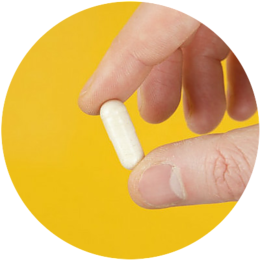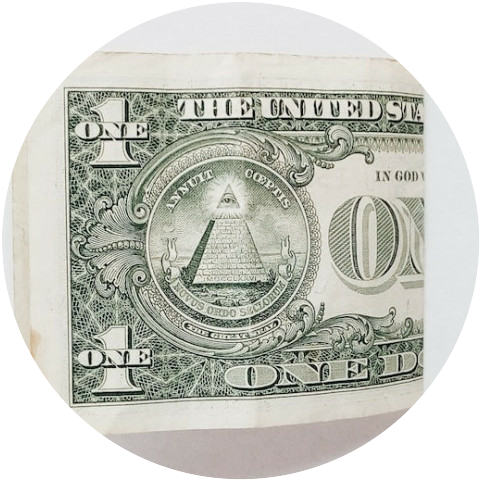Are vitamin and mineral supplements necessary? This is probably one of the more controversial topics in the health world!
And it’s complicated by the fact that often the people who promote the need for supplements have “skin in the game,” so to speak. And those who downplay the need for supplements also have “skin in the game!” So the people “in the know” profit either from selling supplements or from steering people away from supplements in favor of medical solutions. It’s very hard to find someone knowledgeable, who is truly unbiased!
Do We Really Need All These Tablets and Capsules?
I subscribe, at least to some degree, to the following premise:
Because of modern farming practices, the quality of our soil nutritionally has been degraded over the years. Modern farming

practices have both their pluses and minuses, we can’t do much about them…and they have produced greater yields which feed many more people with less resources! But we need to adapt accordingly.
We don’t want to get too deep into the “weeds,” but a study of 20 different vegetables published in the British Food Journal found that, between 1930 and 1980, the average calcium, iron, and potassium content of these vegetables had decreased by significant amounts, and there were also reductions in a number of other nutrients.
Even though the range of the study is over 50 years old, there is probably not much that has happened since to stop this trend. The organic farming and gardening movement has no doubt helped a bit, but still the bulk of farming practice hasn’t changed all that much. It’s great to be able to buy all organic food – but also not very practical if you’re on a budget, and the majority of organic outlets charge significantly more for organic produce – well, pretty much everything that has the “organic” label!
So if we can’t afford organic food, where can we turn to make sure we’re getting the necessary nutrition? Then maybe it’s “supplements to the rescue!”
We Really Need To Educate Ourselves

Most of us have little excuse for being ignorant. We carry the world’s information in the palm of our hand! And it’s mostly free!
But go into any health food store, or even a Walmart… There are rows and rows of all kinds of vitamins, herbs, minerals… Because supplements do have some value, do we need every supplement on the shelf? I hope not, because I at least couldn’t begin to afford them all!
And we really can’t afford to listen to everyone who comes down the pike selling the latest and greatest “discovery” that will completely revolutionize our health and life!
So we need to do some research – and not just listen to the “experts,” many of whom are “down” on supplements. We need to learn for ourselves about protein, Vitamin C, Vitamin D, magnesium, calcium, anti-oxidants, probiotics, prebiotics, herbals, and other nutrients.
Once we are informed, we should analyze our diet accordingly. Are we getting the nutrients we need?
It’s not all that difficult to analyze one’s diet. We can easily use an app like “MyFitnessPal,” where one just types in the name of the food and clicks on “nutrition” for an instant read on the level of vitamins, minerals, protein, etc. in the particular food.
In North America, at least, there is a medical test that can be done that evaluates the nutrient levels in our bodies. This test analyzes what our body lacks, what nutrients, if any, there is too much of, too little of, etc. The cost is in the hundreds of dollars – so not cheap upfront – but maybe it could keep us from feeling like we need to buy every supplement on the shelf! If you have difficulty finding this test, you can check with your local naturopath; he/she is probably aware of it and possibly even will do the legwork to get it facilitated.
Insurance Policy
If we don’t take this “nutrient levels in your body” test, as I have not, I personally think it makes sense to take supplements as a type of health “insurance policy.” This is just to be sure you are not lacking in any important nutrients or vitamins. Whether

this “insurance policy” takes the form of multi-vitamin and mineral tablets, powdered greens, or other forms of supplementation – that’s not what’s important. It’s important for each person to craft their own health policy according to what they determine their needs to be.
For me personally, I like my supplements to be as natural as possible, where it matters, anyway – and it doesn’t always. I take organic greens – which I buy at Costco. I always try to have plenty of Vitamin C and Vitamin D… I take lutein (for my eyes), apple cider vinegar capsules, good quality Omega-3 capsules, and more. But no one should take me as an exact guide! These are things that I think are good for me and my body. Your determination for yourself might be completely different.
I’m not going to dive deeply into matters that relate to the illness that took the world by storm between 2020 and 2022 – far be it from me! But just to illustrate the point that we need to be sure we are not lacking the nutrients we need, researchers discovered early on that a large percentage of people who contracted “the virus” were deficient in Vitamin D. No further comment – just saying!
But What About The Cost of Supplements?

“Hey, I thought this blog was about budget-friendly?!” Yes, it is. And if one is down to the very last dollar, going out and buying Omega-3 capsules probably isn’t the first thing we would focus on! But if we do have a few dollars available…it’s not always that spending less money saves you money. We also need to think long-term!
In the short term – if we knew we were going to be hit by a meteorite tomorrow, we might just go out today and eat all of our favorite foods: ice cream, candy, etc.
But since that’s not likely – we should plan for our long-term health, because if we don’t, it will likely cost us more in the end.
Whatever form planning for our takes (after we’ve done our research for ourselves), it is one of the most cost-effective actions we can take.
Summarizing…
Our health is important. Staying within our budget is important. Keeping it simple is what it’s about! We shouldn’t short-change ourselves and take unnecessary risks in the name of keeping down costs. After doing our own research, we should take whatever supplements we sense that we need for our long-term health. If we believe we have all the nutrition we need from our food – maybe we are able to buy organic, for example – then we can do that! But we need to be proactive! That can be done within a budget, if we are careful! And we shall not forget – no supplements can replace a diet of healthy food. They are called “supplements” for a reason!
If you have any questions or comments, please feel free to share them in the space provided below.
Recommended:
Simple Nourished Living – book: “28 Day Smart Start Weight Loss Challenge”
Book: “Cracking the Vitamin Code: How to Build Your Own Supplement Stack”
Create a Test Drive Account at Wealthy Affiliate Now; It’s Free!

